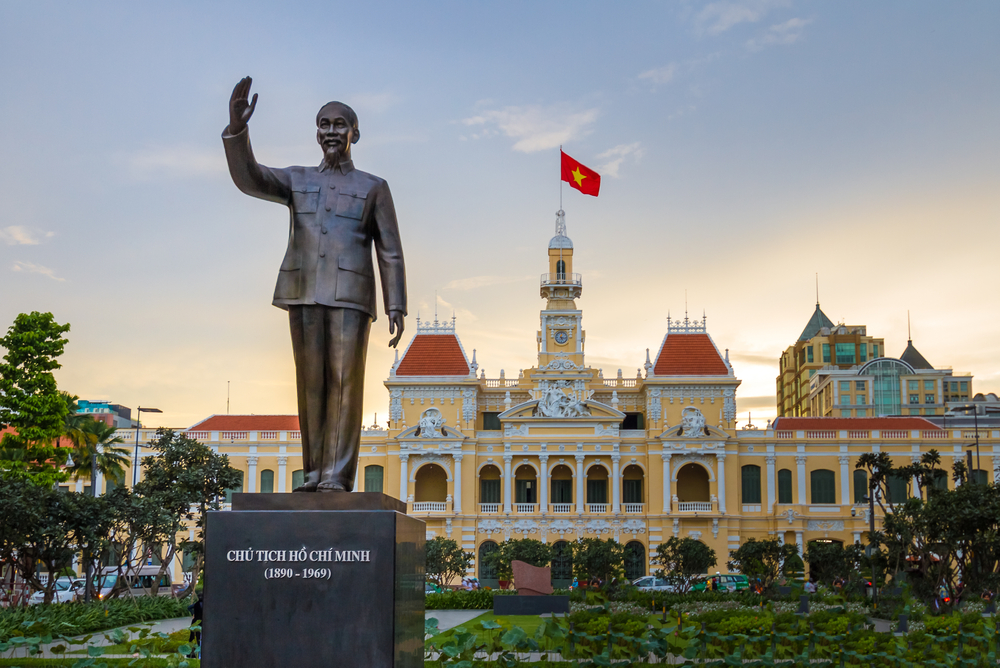Tackling the aftermath: Addressing property damage and cleaning efforts in Vietnam
Vietnam’s anti-corruption drive has played havoc on its property sector, but many believe the real estate scene will benefit in the long term

After Vietnam’s parliament named Vo Van Thuong as the country’s new president in early March, observers described his appointment as a return to stability amid a widening anti-corruption campaign.
Predecessor Nguyen Xuan Phuc, who resigned in January for “violations and wrongdoing”, ranks as the most senior political casualty of the campaign thus far.
Two deputies of Prime Minister Pham Minh Chinh have also lost their jobs, so too did more than 500 Communist Party members last year as the “blazing furnace” of the anticorruption drive escalated.
But it remains to be seen whether Thuong’s appointment as president will indeed mark a return to business as usual in Vietnam.
A month before the new president took office, Communist Party leader Nguyen Phu Trong released a new book on fighting corruption which indicated the campaign would continue.
Since the campaign began to target the private sector last year, the property industry has been among the hardest hit.
In October, authorities detained the chairwoman of a major real estate developer and other leading executives from associated companies including the CEO of a property management company.
The group owns numerous landmarks in Ho Chi Minh City including a luxury commercial tower, the fifth tallest in Vietnam when it was built a decade ago.
Social media posts in Vietnam have frequently speculated that real estate big players were political sponsors of the chairwoman behind the scenes although no such claim or charge was acknowledged when the former president resigned.
Nonetheless, the contagion has spread across the sector as senior executives have faced investigation and arrest, and government agencies have grown increasingly reluctant to allocate spending or approve projects for fear of reprisal.
“Since the start of the campaign, the property sector has received the most damage,” says Dung Duong, executive director of CBRE Vietnam. “Property investors are reassessing… since they are facing difficulty in getting approval for their projects.”
The collapse of the corporate bond market in Vietnam has caused considerable damage in the real estate industry, added Duong.
Amid a government crackdown on the bond market, liquidity has tightened, thereby ending years of easy credit and in turn causing a near 40 percent surge in property company closures in Vietnam last year.
More are expected to follow: Vietnam’s leading credit agency FiinRatings said in mid-February that still more than 80 percent of real estate bonds have been issued by unlisted firms deemed financially weak and with low transparency.

The crisis facing Vietnam’s bond market has combined with steadily rising borrowing costs which already ranked among the highest in the region. Vietcombank, the second-largest lender in the country by assets, hiked its mortgage rates above 10 percent during the second half of last year as the central bank raised the base rate by one percent in September and October.
In a bid to help struggling property developers, the central bank announced a USD5-billion loan bailout package for the industry with the help of some commercial lenders in March.
“The amount of the assistance package may exceed that total if other institutions participate,” said central bank Governor Nguyen Thi Hong, announcing the bailout.
The full extent and impacts of the corruption crackdown remain to be seen, both in Vietnam and the wider region as the crackdown continues.
In Vietnam, the crackdown has caused a more cautious approach by individual and institutional investors, many of whom have taken a wait-and-see approach, said Alex Crane, managing director of Knight Frank in Vietnam.
Clearing out corruption has always been well-received to help a market’s correction. Short-term shock will ultimately lead to longer-term stability
“Especially within the residential sector where smaller investment or speculative transactions have been curbed,” he says. “Knowing your client or counterparty is paramount.”
Yet short-term pain is expected to lead to longer-term gain in Vietnam when it comes to managing corruption-related risks.
The country has soared up Transparency International’s global corruption index, climbing 27 positions to number 77 out of 180 countries last year. As a result, TI’s index now places Vietnam on a par with European Union member Hungary on transparency and corruption. Last year, Vietnam overtook Thailand and now ranks as the least corrupt nation in ASEAN outside of Singapore and Malaysia.
Although difficult market conditions persist, beyond this year the outlook for Vietnam looks brighter should anti-corruption standards become ingrained alongside promised legal reform of the sector, said Crane.
“Clearing out corruption has always been well-received to help a market’s correction. We expect opportunities for new developers and investors to step in,” he says. “Short-term shock will ultimately lead to longer-term stability.”
This article was originally published on asiarealestatesummit.com. Write to our editors at [email protected].
Recommended
Why everyone is moving to Selangor and Johor: Malaysia’s real estate comeback
Malaysia’s upturn in fortunes is especially prevalent in secondary destinations such as Selangor and Johor
Penang’s silicon boom: How the US-China tech war is supercharging local real estate
Penang’s booming semiconductor industry has created ripples within the local real estate sector
New leader, new opportunities: How Hun Manet is shaking up Cambodia’s real estate game
Hun Manet is overseeing decent economic growth and widening access to the country’s real estate market for foreigners
Singapore embraces inclusive housing reforms amid resilient demand
The Lion City’s regulatory strength continues to exert appeal for international investors








